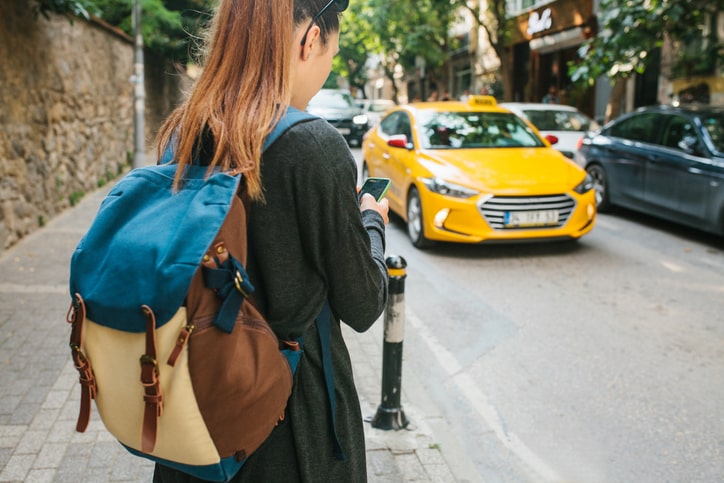With the growing popularity of rideshare services like Uber and Lyft, Atlanta has seen a significant increase in ridesharing vehicles on its streets. While these services offer convenience and flexibility, they have also introduced new complexities in the event of collisions.
When an Uber or Lyft vehicle crashes, determining liability can be challenging due to the multiple parties involved, including the driver, the rideshare company, and other potential third parties. Understanding how liability is assigned in these cases and what legal options are available to injured parties is critical for anyone involved in a rideshare collision.
Our Georgia personal injury attorneys at Ashby Thelen Lowry are here to help.

Rideshare Collision Liability: Who Can Be Held Responsible?
One of the biggest challenges in rideshare crashes is identifying who is liable for the damages and injuries. In traditional car crashes, liability typically falls on the at-fault driver’s insurance.
However, rideshare crashes involve an added layer of complexity due to the involvement of a commercial entity—Uber or Lyft.
In many cases, the driver is the primary party responsible for the crash, especially if driving negligently. If the driver was distracted, speeding, or violating traffic laws, they may be liable for damages. However, whether the driver’s or Uber/Lyft’s insurance is responsible depends on the ride phase in which the collision occurred.
Both Uber and Lyft provide insurance coverage for their drivers, but the level of coverage varies depending on the driver’s status at the time of the crash.
That includes:
- Offline/Not Using the App: If the rideshare driver is not logged into the app at the time of the crash, Uber and Lyft are not liable. In this case, the driver’s auto insurance covers damages.
- Available/Waiting for a Ride: When a driver is logged into the app but has not yet accepted a ride, Uber and Lyft provide limited coverage. In Georgia, this typically includes up to $50,000 per person for bodily injury, $100,000 per collision, and $25,000 for property damage.
- En Route to Pick Up a Passenger or During a Ride: If the driver is en route to pick up a passenger or is actively transporting one, Uber and Lyft’s commercial insurance policies provide up to $1 million in coverage for bodily injury and property damage. This is the highest level of coverage available in rideshare collisions.
- Third Parties: A third-party driver or entity may sometimes be responsible for the crash. For example, if another driver causes a collision or hazardous road conditions contribute to the crash, that party could be held liable.
Rideshare collision cases often involve multiple layers of liability, making them more complex than typical car crash claims. Additionally, Uber and Lyft’s insurance policies have specific terms and limitations that may affect the outcome of a claim. Having an experienced personal injury attorney on your side can ensure that you understand your rights, navigate the complexities of the legal system, and pursue the maximum compensation available for your injuries. We can help.
Contact our skilled Atlanta Uber and Lyft collision lawyers and support team at Ashby Thelen Lowry at (404) 777-7771 or online to schedule a free consultation. Taking this first step will safeguard your rights and empower you to make well-informed decisions about the course of your claim.
